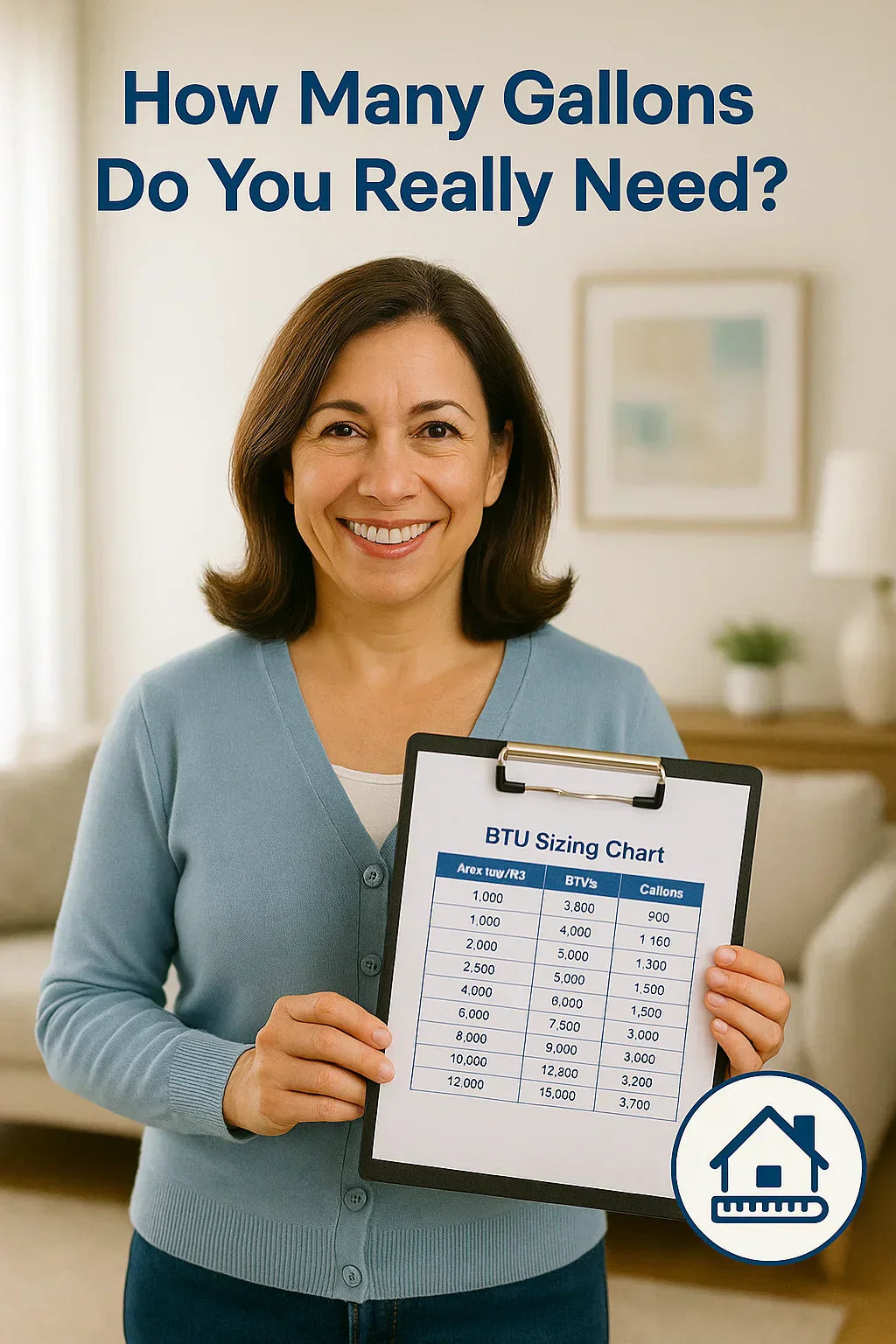🏡 Why Sizing Matters
Choosing the correct electric furnace size ensures consistent comfort, efficiency, and lower energy bills. Samantha Reyes and homeowners focused on practical, energy-efficient upgrades will find that correct sizing prevents overspending on equipment and electricity while keeping the home warm.
🔍 What Determines the Right Size?
✅ Square Footage of Your Home
✅ Climate Zone (Mild vs. Cold)
✅ Ceiling Height
✅ Insulation and Window Quality
✅ Air Leakage and Ductwork Conditions
🔥 Understanding BTU Requirements
Electric furnaces are sized by BTU (British Thermal Units) output:
-
1 BTU = energy needed to raise 1 lb of water by 1°F.
-
General guide:
-
Mild climates: 30–35 BTUs per sq. ft.
-
Cold climates: 40–60 BTUs per sq. ft.
-
🗺️ Example Sizing by Square Footage
| Home Size (sq. ft.) | Mild Climate (BTUs) | Cold Climate (BTUs) |
|---|---|---|
| 1,000 | 30,000–35,000 | 40,000–60,000 |
| 1,500 | 45,000–52,500 | 60,000–90,000 |
| 2,000 | 60,000–70,000 | 80,000–120,000 |
| 2,500 | 75,000–87,500 | 100,000–150,000 |
🛠️ What Is a Manual J Calculation?
A Manual J load calculation is a professional assessment that:
✅ Measures heating/cooling needs precisely.
✅ Considers insulation, windows, climate, and air leaks.
✅ Prevents oversizing or undersizing.
Learn more from ACCA Manual J Resources.
⚖️ Why Oversizing Is a Problem
-
Short cycling, causing wear and higher energy use.
-
Uneven heating and airflow.
-
Increased upfront costs without benefit.
⚡ Why Undersizing Is a Problem
-
Furnace runs constantly without meeting demand.
-
Inconsistent warmth, especially in cold climates.
-
Higher electricity bills due to longer run times.
🌿 Efficiency Considerations
Proper sizing maximizes efficiency:
✅ Combine with upgraded insulation and sealed ducts.
✅ Use programmable thermostats to optimize runtime.
✅ Ensure regular filter changes for airflow.
See Energy Star for additional efficiency resources.
🩺 Checking Your Ductwork
Ductwork must be appropriately sized for your furnace:
✅ Inspect for leaks.
✅ Ensure airflow can handle BTU output.
✅ Seal leaks with mastic or metal tape.
💰 Cost Considerations by Size
Larger furnaces cost more:
-
Small home units: $800–$1,500.
-
Medium units: $1,500–$2,500.
-
Large home units: $2,500–$4,000.
Proper sizing avoids overspending on a larger unit than needed.
✅ Pre-Purchase Checklist
✅ Know your home’s square footage and climate zone.
✅ Evaluate insulation and window efficiency.
✅ Have a Manual J calculation performed.
✅ Check your ductwork’s condition.
✅ Determine your energy budget and comfort goals.
🔗 Next Steps
-
Review electric furnace options at The Furnace Outlet.
-
Contact a licensed HVAC contractor for sizing and quotes.
-
Upgrade insulation to maximize furnace efficiency.
Correctly sizing your electric furnace ensures year-round comfort while keeping energy costs under control for years to come.
In the next topic we will read more about: Is an Electric Furnace Right for Your Home? Pros, Cons, and Cost Comparison







